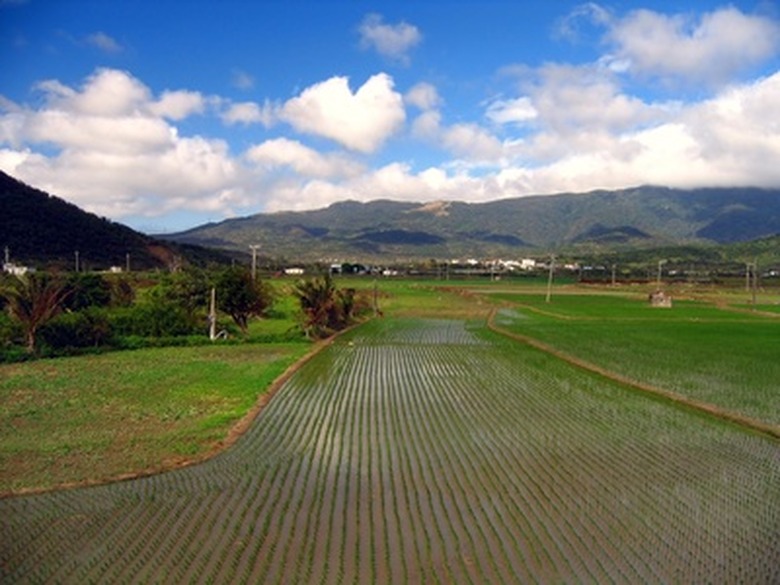What Are The Dangers Of Miracle Grow?
Miracle-Gro is a brand of garden products produced by the Scotts Company, LLC. The brand line includes water-soluble fertilizer, granular fertilizer, bagged soil, and garden hardware such as hose sprayers. The original Miracle-Gro product, first marketed in 1951, is a water-soluble fertilizer sold as a blue powder.
Salts
Using an inorganic fertilizer, like the standard Miracle-Gro product, over a long period of time can encourage salt buildup in the soil. This decreases a plant's ability to take up nutrients.
Consumer Error
Since the original Miracle-Gro product is sold as a water-soluble powder, the consumer must mix the solution according to the manufacturer's instructions. If the consumer makes an error, their plants may receive too much or too little fertilizer.
- Miracle-Gro is a brand of garden products produced by the Scotts Company, LLC.
- The original Miracle-Gro product, first marketed in 1951, is a water-soluble fertilizer sold as a blue powder.
Pesticides
In 2008, the EPA ordered the Scotts company to recall two Miracle-Gro products. These products contained a commonly used herbicide, trifluralin. Because the herbicide was not listed on the Miracle-Gro label, consumers may have been unknowingly exposed and may not have followed safe handling or disposal practices. The company recalled the products; however, some consumers may have purchased the products before the recall took effect.
Environment
Many ingredients of inorganic fertilizers do not come from sustainable resources. The production of fixed nitrogen in the original Miracle-Gro and other fertilizers commonly involves energy produced by burning fossil fuels, like coal and natural gas. Additionally, excess fertilizer can be washed into local water sources, creating algal blooms that consume oxygen in rivers, lakes, and even oceans. This oxygen starvation kills life in the affected waters, creating "dead zones."
- In 2008, the EPA ordered the Scotts company to recall two Miracle-Gro products.
- The production of fixed nitrogen in the original Miracle-Gro and other fertilizers commonly involves energy produced by burning fossil fuels, like coal and natural gas.
Prevention
Do not use a fertilizer unless your soil requires additional nutrients. After fertilizing, water thoroughly but do not allow over-watering or runoff. Immediately clean up any spilled fertilizer.
Apply Miracle-gro To Grass
Because it takes many grass plants to make a lawn, it's all too easy to forget that, like other plants, grass must be properly cared for. In addition to adequate sun and moisture, grass also needs sufficient nutrients in the form of an all-purpose fertilizer, such as Miracle-Gro Water-Soluble Lawn Food, or a comparable product. Grass takes up some of its nutrients from the soil. Other important minerals are needed in lesser amounts. Called micronutrients, they include sulfur, calcium and magnesium, as well as trace nutrients such as iron, boron, copper and nickel. For average lawn maintenance, use 1 tablespoon Miracle-Gro Water-Soluble Lawn Food in 1 gallon of water for every 15 square feet of lawn.
- Do not use a fertilizer unless your soil requires additional nutrients.
- In addition to adequate sun and moisture, grass also needs sufficient nutrients in the form of an all-purpose fertilizer, such as Miracle-Gro Water-Soluble Lawn Food, or a comparable product.
References
- International Fertilizer Industry Association: Nutrients in the Environment
- Fertilizer Run-Off From Agricultural Activities Blamed For Gulf Dead Zone In Gulf Of Mexico; Science Daily; April 24, 2008
- University of Minnesota Extension: Fertilizing Lawns
- Miracle-Gro: Miracle-Gro Water Soluble Lawn Food
- Grassmaster: Fertilizing Tips
